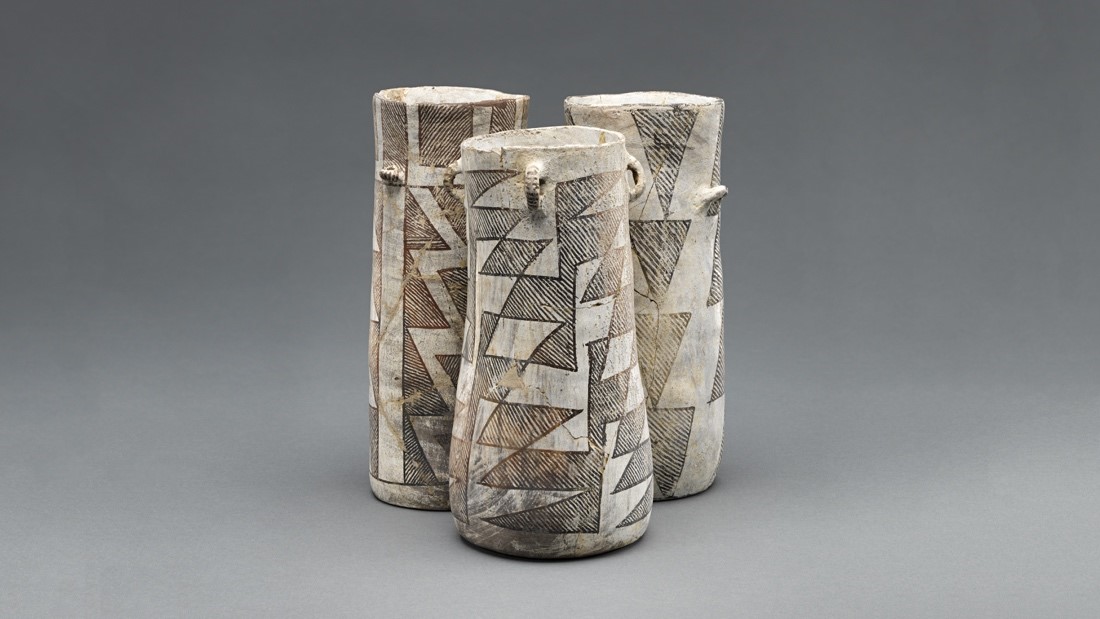What Chocolate-Drinking Jars Tell Indigenous Potters Now
SMITHSONIAN VOICES NATIONAL MUSEUM OF NATURAL HISTORY
July 7th, 2020, 11:49AM / BY Abigail Eisenstadt

The Chaco Canyon chocolate-drinking jars have a distinct shape, with connections to similarly shaped Mayan vessels. After testing distinguishable jar fragments from an excavated trash pile in in the canyon, archaeologists determined all of the drinking jars were used to consume cacao. (A336494, A336499, A336493, James Di Loreto, Smithsonian)
When an archaeologist found traces of cacao residue in Puebloan cylinder drinking jars a decade ago, the implications were huge. Her discovery of chocolate proved that Southwestern desert dwellers in Chaco Canyon had been trading with tropical Mesoamerican cacao-harvesters, like the Maya, as far back as 900 CE.
But the drinking vessels are as significant as the chocolate hidden inside them. They are living proof of a dynamic pottery-making tradition that continues in descendant tribes of the Chaco Canyon Puebloans today.
In the early 1900s, the Smithsonian’s National Museum of Natural History joined an archaeological expedition that collected some of the cylinder vessels from Chaco Canyon. Two of them are now on display at the museum’s “Objects of Wonder” exhibit. The jars’ acquisition is a reminder of the museum’s colonial past, but nowadays the museum’s anthropologists have a new purpose for the jars and other pottery: to connect them with indigenous people who are spearheading cultural revitalization in their communities.
For example, the museum’s Recovering Voices program works with indigenous communities like the Hopi descendants of the Chaco Puebloans to better understand pottery-making traditions. It also brings established potters to the collection so that they can study it for the next generation.
More:
https://www.smithsonianmag.com/blogs/national-museum-of-natural-history/2020/07/07/what-chocolate-drinking-jars-tell-indigenous-potters-now/
